Sharing why anti-FGM/C advocates like myself maintains the position that FGM/C remains un-Islamic in light of the current events, all of which failed to bring a single authentic evidence from both the Qur’an and Hadith and by extension from any Islamic literature to indicate that the wives and daughters of the messenger of Allah (SAW) were circumcised and that he ordered his followers to do it to their daughters, not even in his biography, known as the Sīrah which details all information about the Prophet’s (SAW) life, such as his birth, events, manners, and death.
All praise and thanks be to Allah the Almighty and peace and blessings of Allah be upon Muhammad (SAW).
While I uphold the Prophetic exhortation of “Ballighu ‘Anni walau Ayah” (convey from me even you know a single verse of the Qur’an), this is not in any way a fatwa (rulings) in Islam, but something developed through the combination of all my submissions on FGM/C motivated by the efforts of Islamic Scholars within and outside the Gambia and anti-FGM/C advocates through various interactions on the online platforms.
In view of the above, scholars are mere conduits going by the fact that it is Allah’s grace, that people now have access to the same knowledge in the comfort of their homes that would have taken people in the past so many years and efforts to access as He sanctioned by saying {“We will show them Our signs in the horizons and within themselves until it becomes clear to them that it is the truth. But is it not sufficient concerning your Lord that He is, over all things, a Witness?”} reinforced by the messenger of Allah SAW when he said “This matter will certainly reach every place touched by the night and day. Allah will not leave a house of mud or even fur except that He will cause this religion to enter it, by which the honorable will be honored, and the disgraceful will be disgraced. Allah will honor the honorable with Islam and He will disgrace the disgraceful with unbelief.” So this is beyond all of our scholars pro or anti FGM/C combined, because everyone really has the access to this knowledge themselves and it is left to individuals to blindly follow their scholars or follow Allah and His messenger (SAW) which takes precedence whether we accept it or not.
It is also worth saying that as a Muslim, a religious matter should not be discussed with an intention to determine who is going to win the conversations or to seek for recognition and or gain more or maintain a following but to share your religious convictions with the hope that by Allah’s grace it’d be received with acceptance, albeit the rate of acceptance is entirely out of your hands.
To begin with, the insensitive arguments go as “if your mothers, daughters and sisters are not circumcised keep that to yourself but you cannot stop us from circumcising ours”, and I’d say how is it Islam that you are only concerned about yourself and your family? Did the Messenger of Allah SAW hoard Islam and limit its beautiful mercy to only his family? Secondly, how did they know? And how did they know that some of us advocating against this practice aren’t having it very difficult to talk about this subject not only on the online platforms but even in our homes but we get through with it for religious, medical and other reasons?
Again they say “if all our mothers, daughters and sisters have long been subjected to this practice, how comes the complications and sufferings complained today were never the case” I’d say just because someone doesn’t complain about their pain doesn’t mean they are not in pain or have complications. For example, Polygamy is very recommended in Islam but is it not a painful experience for many women even though they bear their struggles in pain and stay in such marriages for the simple reason that it is a religious thing? Another example is when you have lost a person so dear to you and even though the religion allows you to cry, is it not the same religious reasons we’d proffer for you to take patience by not crying and if you do, does your patience take away your pain? How does this two example relate to the assertion that people are made to accept FMG/C because they are made to believe it is religious or it is a religious obligation? But even if the silence of the “majority” of women would indicate the absence of the complications and sufferings alleged, is it a wise thing to dismiss the cries of the “few” as well as the voices of medical and health practitioners? And how do we know that these complications forwarded by these practitioners has long being the cause of serious health issues and fatalities many years ago and may have long being misdiagnosed and treated for something else simply because we do not have the capacities medically then or use to dismiss them as QadaralAllahu wa Ma Shaa Fa’al (it is the will of Allah and He does what He will)?
Now let’s flip the coin to the other side, perhaps this might give us a better understand. In the late 20th century it was discovered that inhaling asbestos dust causes serious pulmonary diseases and cancer. Many countries, therefore, began phasing out its use as well as removing it from existing structures. For example, it was on July 12, 1989 that a ruling was made to ban most asbestos-containing products in the United States and was fully banned in the United Kingdom in November 1999 and a host of other countries: Countries with asbestos bans | Asbestos and Silica Safety and Eradication Agency (asbestossafety.gov.au) . In The Gambia, although I am not sure it is banned, significant strides have been registered by Government in efforts to remove asbestos from public buildings.
Through project entitled” Institutional Capacity building for the implementation of the Multilateral Environment Agreements in The Gambia”, funded by the Special Programme on Institutional Strengthening, was launched in May 2018 to facilitate the implementation of measures to address the establishment of policies that address the management of asbestos and its removal.
To achieve the project’s goals, the Gambian Government had planned to conduct a nationwide inventory exercise to locate, map and characterize all sites where asbestos can be found. The data collected will be used to develop a national policy and legislation on asbestos in order to ensure the protection of human health and the environment. The project also focuses on awareness raising and training of relevant stakeholders, including politicians, security forces, women and vulnerable communities along both sides of the border, on the dangers of asbestos contamination.
The project was scheduled for completion in early 2020 and it is expected that achieving the project’s objectives will contribute to the fulfilment of The Gambia’s obligations towards Multilateral Environment Agreements, such as the Basel and Rotterdam Conventions and the Minamata Conventions which The Gambia is a party to, as well as enhancing and protecting its environment and health of Gambians.
Let’s go further, we all know that immunisation is not a new concept in The Gambia. Many will recall the nation-wide activities of the World Health Organization (WHO) against smallpox in late 1970’s when the disease was claimed globally eradicated and measles controlled. In 1970, a report submitted by the Epidemiology and Statistics Unit (ESU) of the Ministry of Health division, revealed high rates of childhood morbidity and mortality. Further analysis of this report indicated that a large proportion of these conditions were attributable to communicable diseases, many of which were vaccine-preventable. Among these were measles, tetanus, polio, tuberculosis, whooping cough and diphtheria. The government of The Gambia requested assistance from USAID, WHO and other appropriate agencies to contain outbreaks caused by diseases such as measles and yellow fever. Consequently, in 1979 the Expanded Programme of Immunisation (EPI) was established. Since 1979 The Gambia has been augmenting its EPI activities by increasing access to routine vaccination, strengthening of the cold chain through solarization, decentralisation of storage facilities through the creation of divisional stores, and the conduction of National Vaccination Campaigns (NVC). The duration of the NVCs ranges from a week to two of special emphasis on vaccinations. These activities are aimed at creating higher levels of public awareness and commitment towards the EPI while at the same time mobilising the public to receive the target vaccines. During this week when various sectors of the public including other Government Ministries, the Media, Religious organizations, NGO, community organizations and Donor Agencies join efforts to promote both the EPI and mass vaccinations throughout the country.
Now tell me how is the above campaigns for such an important health undertaken in light of the financial support and The Gambia being a party to conventions different from those for FGM/C? It is quite surprising that we all embraced these solutions in order to protect ourselves and our families from such deadly diseases without batting an eye or seeing the treachery of the “toubab” or this mentioned organizations in them, and with these solutions used until today, we have never for once suggested that our traditional medicines are there for us and it is indeed so convenient to say it about possible FGM/C complications.
Now isn’t it save to say that the fight against FGM isn’t a fight against Islam? Yes, the enemies of Islam are fighting against Islam but should it be seen in everything including those that The Gambia herself has made commitments to uphold? One such instrument like the 1951 Geneva Convention states that a refugee is identified as someone unable or unwilling to return to their country of origin owing to a well-founded fear of being persecuted for reasons of race, religion, nationality, membership of a particular social group, or political opinion. Have we ever then taken a moment to reflect on how many Gambians have successfully secured asylum in the west on the grounds of FGM/C, LGBTQ+ (it may happen that in some cases, an applicant may not even be gay), etc.? and then perhaps reach the conclusion that besides ensuring that Gambia fulfils her obligations to the treaties (hence the financial support as done for other commitments already discussed above), if there is another vested interest, it is to ensure that the law on FGM/C remains and that there are new ones that protects the rights of the LGBTQ+ so that people will no longer be able to seek for asylum on those grounds and not necessarily a fight on Islam. Does the externalization of the EU borders now such that embarking on migration through the irregular migratory route is either suicidal or getting stranded in transit countries give us the hint? Yet we feel so confident to say that anyone who holds a different religious position on FGM/C or any other religious matter even as minute as attending to the call of nature is devoid of the fear of Allah or motivated by money. Is this how lowly we should think of all our fellow Muslims with a different religious position?
In this section, it would be ideal to review the submission that the Qur’an and Sunnah aren’t logical sources. Now I’d ask how was the messenger of Allah SAW able to win and unseal the locks over the hearts of the warlike pagan Arabs? Is it through force, wealth, authority, beauty, etc or is it through the logic that the Qur’an and the messenger of Allah’s (SAW) way of life presented against the illogical way of life of the pagans? Yes, there are few instances where only faith comes to play and even though we might try to Justify FGM/C only on that grounds, does it warrant us to rubbish the entire Qur’an and Sunnah illogical? Aren’t they the most logical thing you’d ever find on the phase of the earth?
So the fundamental argument forwarded to support FGM/C as a religious instrument is that it helps women stay away from promiscuity as put by one of the “highly educated” as “This corrupted version, couched in carefully misleading medical and scientific jargon designed to promote unrestrained promiscuity prevalent in Western societies, is deceptively sold to us as a major health hazard,” my response to this baseless and dishonest argument has always been that since promiscuity happens between men and women, if circumcision helps women stay away, what helps us men?
Until today I have not gotten an answer to the above question and maybe we’d know why if you please permit me to share a conversation I had with two Sheikhs few months ago about how it is only Allah who can save us from promiscuity and not any one of us even if we are some spiritual giants. That said, Allah in His infinite wisdom has given us the ability to fight our canal desires to the best of our abilities.
One of the Sheiks then shared a story in which he was asked by a lady whose husband is his friend to help talk to his friend to convince him to stop going after anything under the skirt and that the wife is afraid that the husband may contract an infection and transmit it to her. Would you believe the response of the husband to the friend was that, “my friend isn’t this what every man is doing?”
Now if this conversation I just shared doesn’t give us the idea of the kind of society we have, then we might not really be serious about this matter and that tells you more about how we got convinced that in spite of the undisputed divine injunction for both genders to not go near a disastrous sin, Allah and His Messenger told us in order to achieve the objective for both, we need to devise an instrument/practice for only one and then Allah and His Messenger totally disregarded it for the other one and that he may in fact do the sin as he pleases or that for him, his eemaan/Allah consciousness would be enough for him to stay away?
The logical question to ask is are our mothers, sisters and daughters created less in this regard? Is this an unfair division by mortal beings or by Allah and His Messenger? To find an answer to this, you might want to join me on a trip to the original sin {And when they tasted of the tree, their private parts became apparent to them, and they began to fasten together over themselves from the leaves of Paradise. And their Lord called to them, “Did I not forbid you from that tree and tell you that Satan is to you a clear enemy?} {They said, “Our Lord, we have wronged ourselves, and if You do not forgive us and have mercy upon us, we will surely be among the losers.} Now would you agree with me if I should tell you that the unfair division is mortally motivated and not divine? And this is why there is not a single evidence for FGM/C from the book of Allah and can’t be link to it with the Salah (prayer) analogy because Allah did not send down the Qur’an and leave it at that but He has a messenger whom He honored with the responsibility of expounding on His words and this is why the Hadith itself is considered a divine revelation because it details many other issues in the Qur’an and not just the five daily prayers.
Furthermore, many prominent Islamic scholars such as Sayyid Sabiq, the author of Fiqh-us-Sunnah, has said that “all hadiths concerning female circumcision are non-authentic” https://www.ohchr.org/…/Rese…/ReligionAndHumanRights.pdf. Dr. Bilal Philips in this link https://www.facebook.com/DrBilalPhilips/videos/10154006552909089/ also mentioned hadiths that are not authentic and would say “the females from the family of the messenger of Allah (SAW) weren’t circumcised and that the messenger of Allah (SAW) did not recommend the practice”.
Now, should we accept the two most salient hadiths that we have been obsessed with all this while, have we taken a moment to ponder on them as Muslims are obliged? Please let’s try, as there is no harm in trying and the first one we’d pick is the hadith narrated by Umm Atiyyah al-Ansariyyah where A woman used to perform circumcision in Medina. The Prophet (SAW) said to her: Do not cut severely as that is better for a woman and more desirable for a husband. Many scholars including the pro-FGM/C in their commentary on this hadith would say that the messenger of Allah (SAW) told the woman if you were to do it then don’t go to the extreme. Isn’t that saying different from “do it but don’t go to the extreme”? Doesn’t it mean “how I wish you do not do it but if you must insist, then don’t go to the extreme”? What we can also deduce from this is that FGM/C was already a deep rooted culture in medina which was predominantly a Jewish and pagan Arab tribe (Aws and Khazraj) settlement who would not have readily accepted the messenger of Allah’s (SAW) wish for the practice to be abolished but even at that, he would have still shown compassion (do not go to the extreme). This to me doesn’t suggest an approval and even if it were an approval, it is an approval for them and not for us Muslims otherwise should we take it an approval for Muslims, are we saying that the Prophet Muhammad SAW ordered his followers to do a harmful practice on their families while he SAW decided to save his own? As there is no evidence in Islamic literature that any of the females of his (SAW) household were ‘circumcised,’ or that the practice was common among the early Muslims. I have asked this question several times and the only response I ever got is the analogy of an animal slaughtered by the companions, cooked and the Prophet (SAW) was served, but he didn’t accept it as a person, but allowed the companion to eat it. I asked was that animal harmful or later found to be harmful to the beloved companions? The answer was obviously a NO because even in our own settings, we don’t get to eat everything the other members of families eat and vice versa and this argument cannot be used to justify a thing that the Prophet (SAW) didn’t do or recommend.
Perhaps we would be saved from the burden of such wild imaginations if we really accept the reality of the above mentioned hadith and that is, Imam Abu Dawud (the compiler) himself rejected the authenticity of this narration by saying: “Its chain of transmitters is not strong. Besides, it is reported not as a direct quote attributed to the Prophet… This hadith is poor in authenticity.”
Following Abu Dawud, many classical authorities noted the lack of authenticity of the hadith, and its inadmissibility as evidence for the derivation of Islamic laws. Renowned hadith expert Ibn Hajar, for instance, dismissed this narration outright (Talkhis al-habir fi takhrij Ahadith ar-Rafi’i al-Kabir).
Yusuf ibn Abd al-Barr similarly concluded:
“It is based on the authority of a transmitter whose report cannot be admitted as evidence… Those who consider (female) circumcision as a sunna, use as evidence this hadith of Abu al-Malih, which is based solely on the evidence of Hajjaj ibn-e-Arta’a, who cannot be admitted as an authority when he is the sole transmitter. The consensus of Muslim scholars shows that circumcision is for men.” (‘Al-Tamhid lima fil-Muwatta min al-M’ani wal-Asanid’, in Shams al-Haq al-Azhim Abadi’s Awn al- ma’bood fi sharh Sunan Abu Dawud)
Muhammad ash-Shawkani also noted in his Nayl al-Awtar (Vol. 1, p. 139) that, “In addition to the fact that the hadith is not valid as reference, it does not give any evidence to prove the case in question.”
There is one further narration which has been used to justify FGM/C as an Islamic practice:
“Circumcision is a tradition for men and honorable for women.” (Musnad Ahmad, 20195)
However, the narrators of this hadith, Usama ibn Umar, Shidad ibn Was and Abdullah ibn Abbas, are all weak (al-Dhahabi, Tanqeeh At-Tahqeeq 2:264; Ibn Kathir, Jami’ Al-Musaneed, 5100; al-Bayhaqi in Sunan Al-Kubra, 8:325). As with the previous hadith, this narration is simply inadmissible from a jurisprudential perspective.
Here is another link connected to Imam Abu Dawud’s commentary on this hadith: https://www.thegambiatimes.com/muddy-waters-of-female…/
Similarly, we have looked at the hadith that goes as “When a man sits between the four parts (arms and legs of his wife) and the two circumcised parts meet, then ghusl is obligatory” and I’d argued that assuming this hadith is authentic even though it is not, is the “Hadaf” (target, aim or goal) of this hadith about recommending female circumcision or is it about what necessitates ghusl as to when the organs come in contact, circumcised or uncircumcised? or is Islam only for the circumcised? Don’t we have many Muslims uncircumcised? or did Prophet Muhammad SAW make something not mandatory and then expected everyone to practice it? Or is an intended revert required to be circumcised as explained by the revered Islamic Scholar in this link?: https://www.youtube.com/watch?v=lDw4i0OUzss… that by extension refutes the claim that female circumcision is done on the basis of purification. Again is the comparison of male and female circumcision not also addressed, bearing in mind that the removal of the prepuce exposes men to more sexual pleasure whereas removing/reducing the clitoris is fundamentally intended to curtail the sexual pleasure of women?
In summary, there is no basis within Islam for FGM/C and since we cannot link it to a single authentic religious source, we often forward several comparisons as to why we condone those practices and not FGM/C? such as abortion, skin bleaching, cosmetic surgeries, sex reassignment surgeries, homosexuality, etc. or we’d ask why are the people whose societies are infiltrated with such practices be the ones to tell us how bad FGM/C is? To this we may be reminded that these practices are done by people who have the capacity to make those decisions themselves unlike the children that are subjected to FGM and bam, someone may ask “If you don’t take your child to school did you violate his or her right?. If yes, why can’t the parents wait until the child is old enough to make his or her own decisions whether to go to school or not.?” To this, we might say “Your child is not obliged to pray or fast until he attains puberty, but you take him to the Masjid or ask her to fast right? How is any of this (school, prayer, fasting, etc.) comparable to harming a child?
Secondly, some of these practices for example Abortion as far as am concerned remains criminalised in The Gambia based on the British Offences Against the Person Act of 1861, which only permits abortion if it is necessary to save the pregnant woman’s life. But why are we comparing a matter which concerns Gambian Muslims to something that doesn’t concern them? We know very well that no sane and genuine Muslim is advocating for the legality of abortion except in the case mentioned as well as homosexuality, prostitution, skin bleaching, etc. but what some of us said is that their rights as human beings should be guaranteed as Allah himself sanctioned and at most what a Muslim can do is not to associate with them but not to persecute or at worst kill them.
About the bill that seeks to the reverse the FGM/C law, we have heard the cry for it to be repealed to make it matter of choice but we might also want to consider the cry for a law that makes it a matter of choice as long as the girl child would be in a capacity to make the choices themselves, that might become the only reasonable compromise in this matter of a significant national interest.
Finally, I reiterate that it was very difficult for me to join this conversation and coming from an extended Mandinka family where only three (3) females were not subjected to the practice should lend credence to my claim. The case of these three (3) makes me grateful and hopeful for the continuous advocacies and that it is in itself an indication of the impact of the advocacies and awareness creation. Today, thanks to such efforts including access to religious knowledge, many parents have saved their daughters from the harmful practice regardless of their own realities with the practice and I therefore cheer on the frontlines in this laudable cause albeit my message will always be for all advocates to be civil in their advocacy either on religious, social, cultural, health or legal grounds, while we all await the outcome of the bill seeking to reverse the law on FGM/C and take the outcome in good faith.
AsSalamu Alaykum Warahmatullah Wabarakatuh!
By a concerned Gambian religious anti-FGM/C advocate

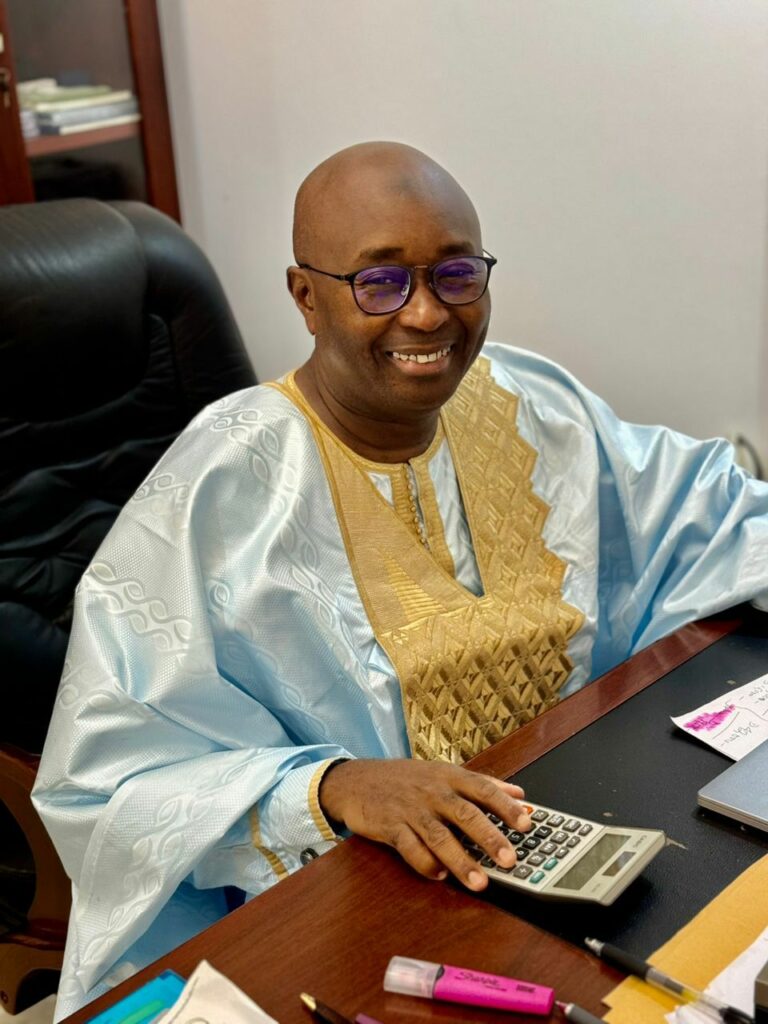
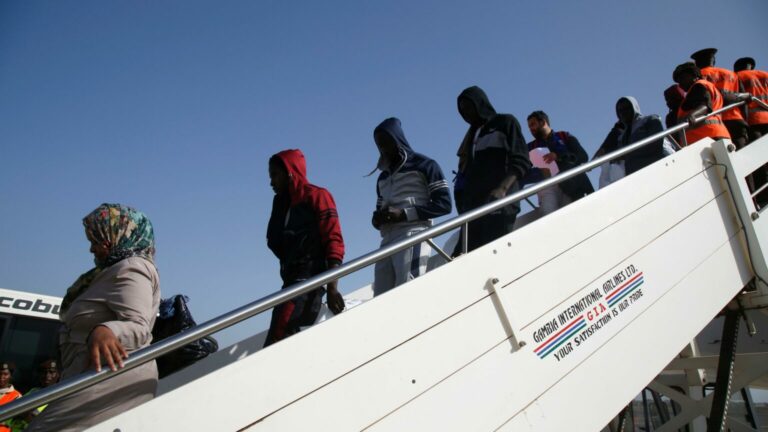
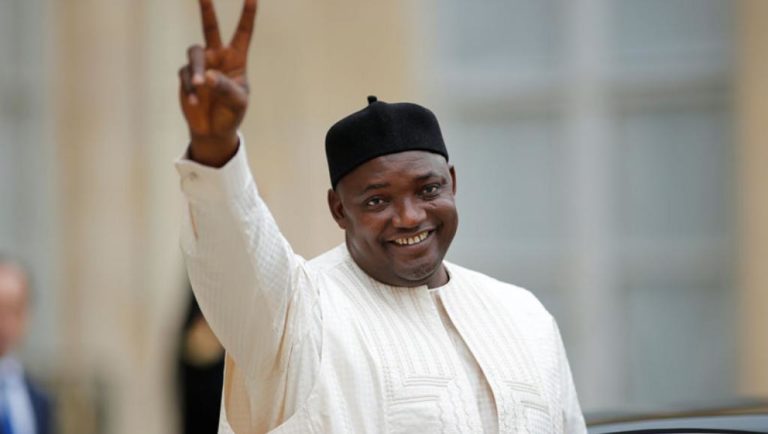
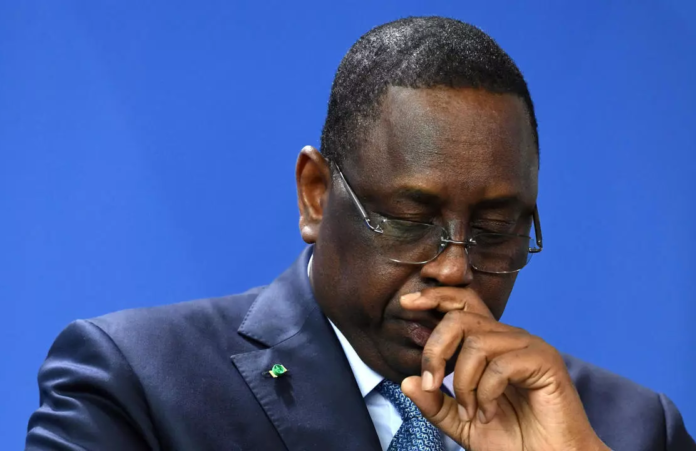
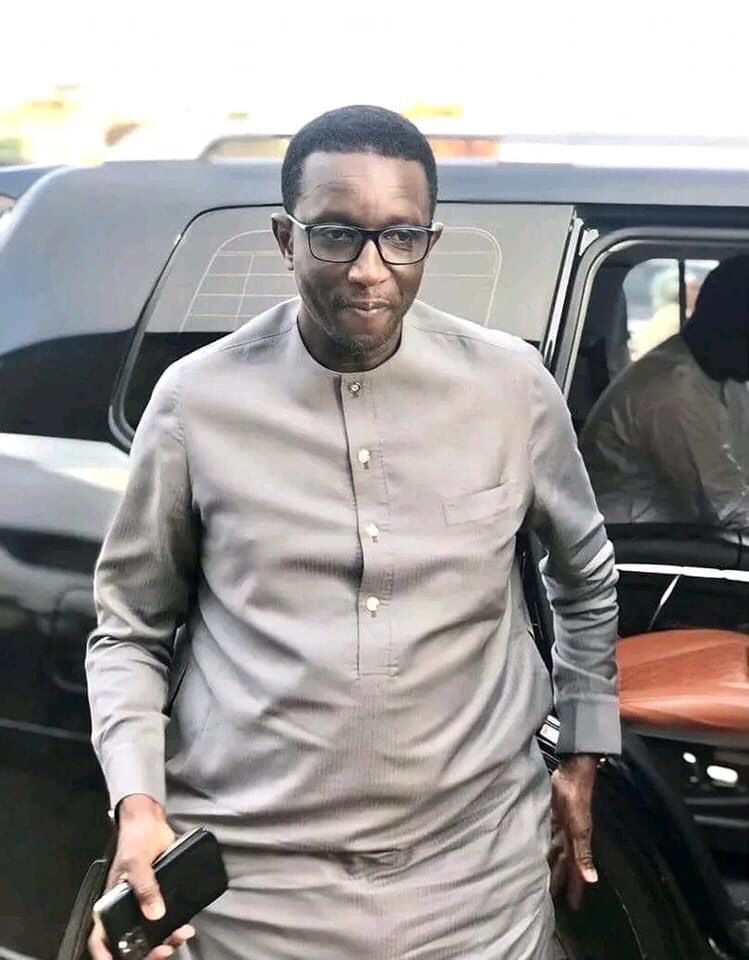
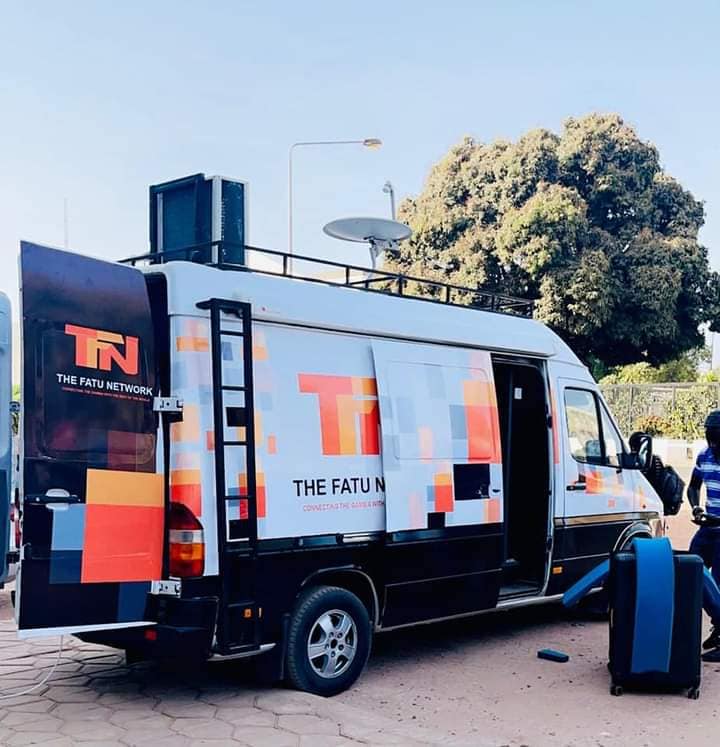
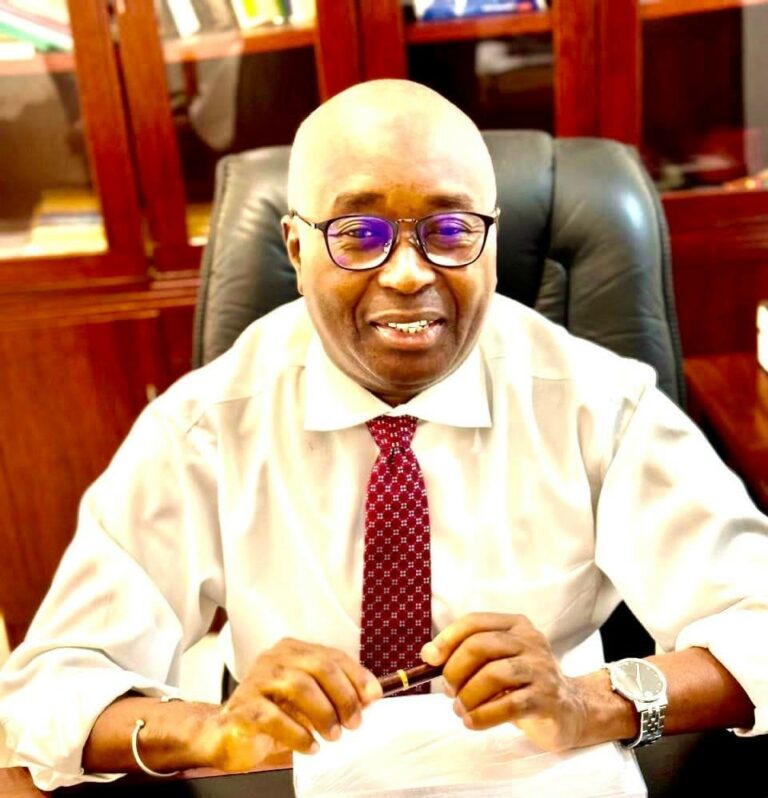

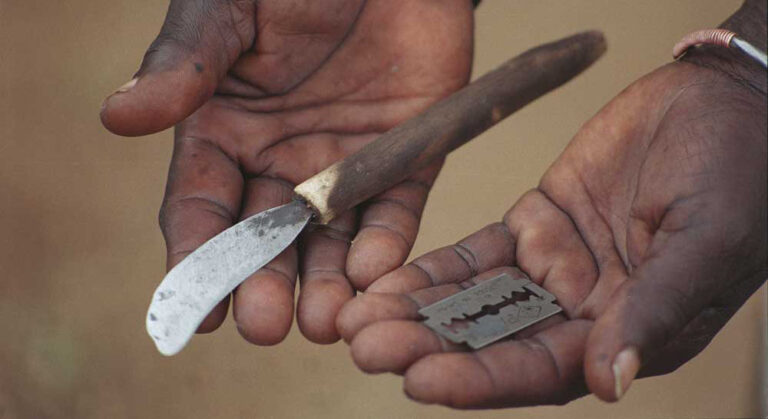

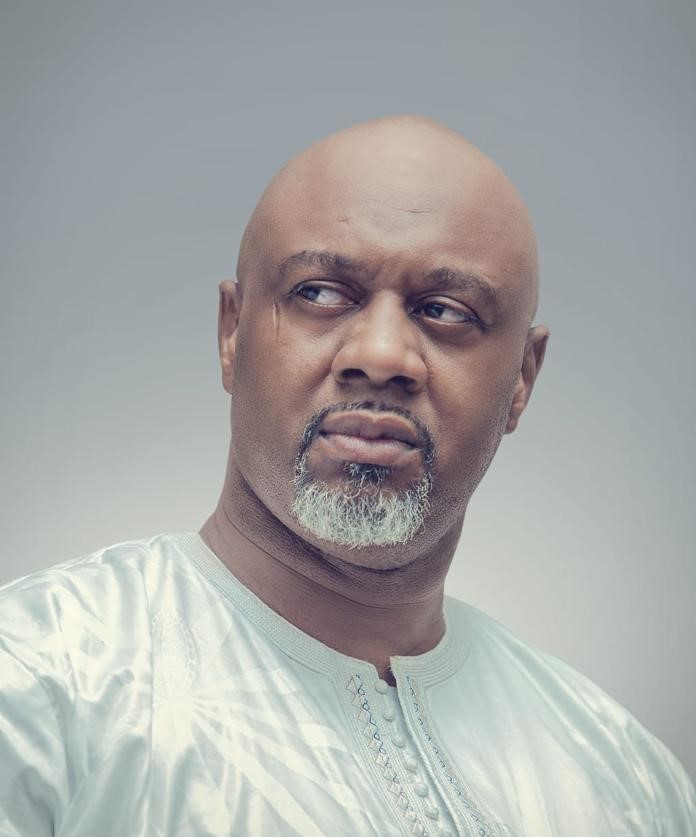
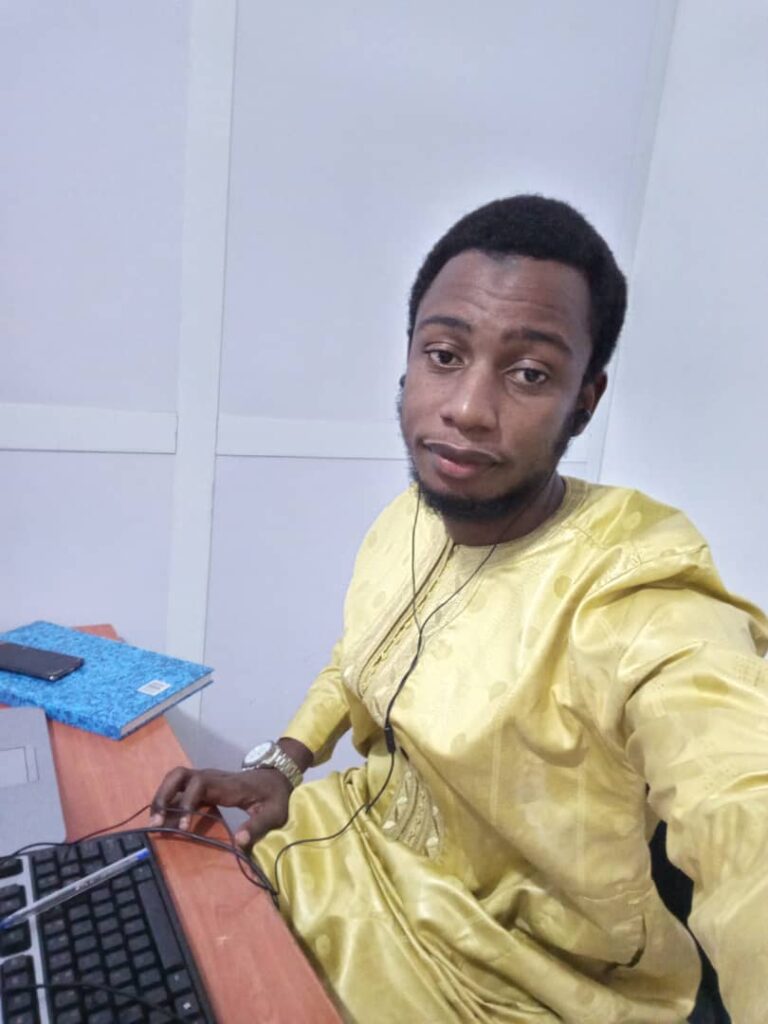
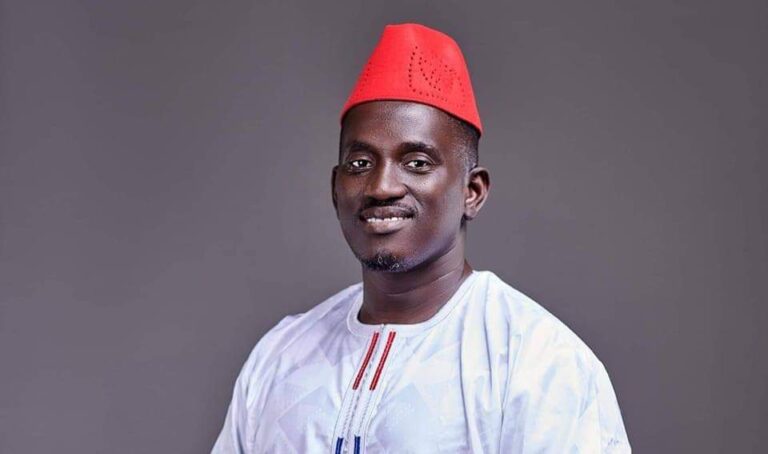
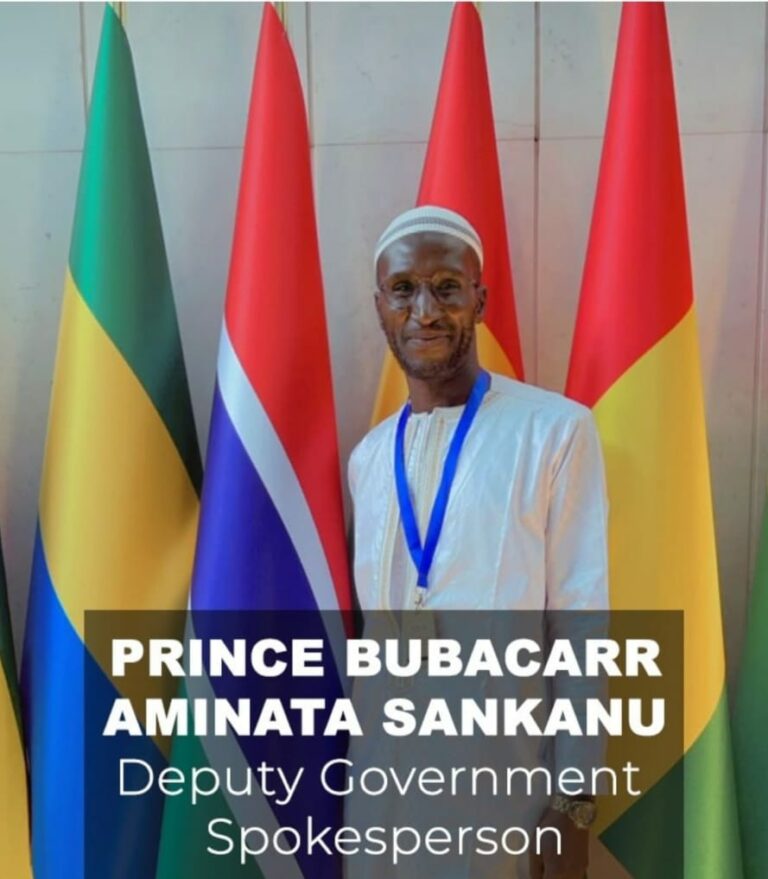


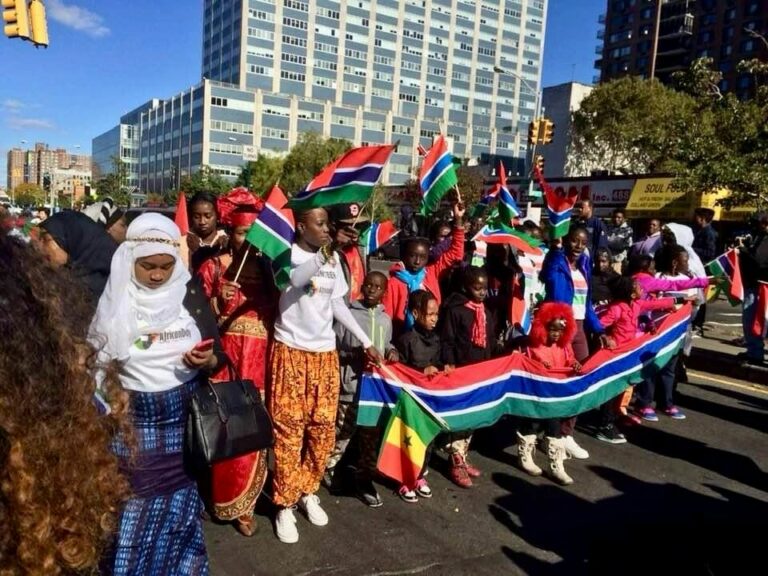
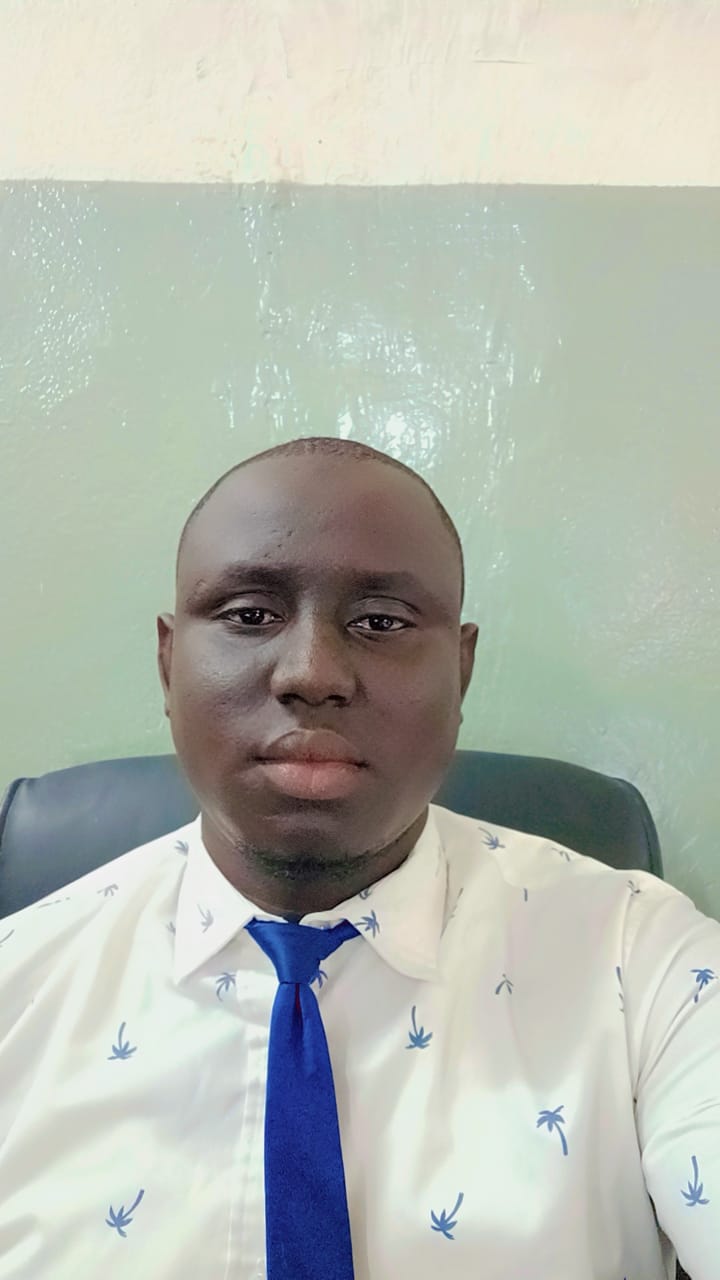

President Barrow’s Political Maneuvers: Navigating The Gambian Landscape Towards 2026
OPINION
Bakary J. Janneh
In the tumultuous realm of Gambian politics, President Barrow stands as a formidable force, with his recent governmental restructuring and proactive approach towards youth inclusion sparking both admiration and apprehension among the populace. As the 2026 presidential election looms on the horizon, the political landscape remains fraught with uncertainty, yet the odds of unseating President Barrow’s government appear to dwindle, despite lingering dissent.
President Barrow’s strategic maneuvering, particularly evident in his restructuring of the government, underscores a calculated effort to solidify his grip on power. By embracing inclusivity and integrating the voices of the youth into his cabinet, he not only garners support from a crucial demographic but also neutralizes potential opposition. This move not only presents a facade of progressiveness but also serves as a shrewd political strategy aimed at consolidating his base and mitigating dissenting voices.
However, amidst President Barrow’s apparent stronghold, opposition forces are not to be underestimated. The restructuring of the government and the infusion of youth voices may serve as a catalyst for the opposition to refine their strategies and bolster their preparations for the upcoming electoral battle. The opposition’s resilience in the face of adversity remains a force to be reckoned with, as they navigate the treacherous waters of Gambian politics with renewed vigor and determination.
Furthermore, President Barrow’s ambitious infrastructure expenditure and focus on electricity provision in rural Gambia not only reflect his commitment to development but also serve as potent political ammunition. These initiatives resonate deeply with rural constituents, potentially bolstering President Barrow’s support base and affording him a considerable advantage in the electoral arena. As he strategically allocates resources to uplift marginalized communities, President Barrow simultaneously strengthens his political standing, further complicating the opposition’s quest for electoral dominance.
In the midst of these political machinations, one cannot overlook the dynamic interplay of socio-economic factors that shape the Gambian electorate’s perceptions and preferences. President Barrow’s pragmatic approach towards governance, coupled with his tangible efforts to address pressing issues such as infrastructure and electricity provision, resonates with voters longing for tangible progress and development.
As the countdown to the 2026 presidential election begins, the Gambian political landscape remains rife with uncertainty and intrigue. President Barrow’s adept maneuvering and strategic initiatives position him as a formidable incumbent, while the opposition’s resilience and strategic recalibration hint at a potential shift in the balance of power. In this high-stakes game of political chess, only time will reveal the ultimate victor, as the destiny of the Gambian nation hangs in the balance.